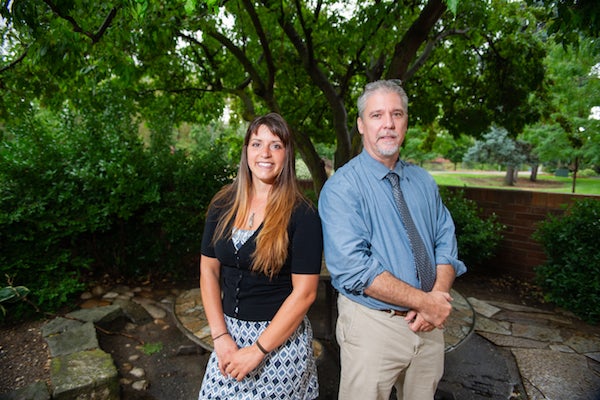
It’s one of those things you intuitively know – yoga is good for your mind and spirit as well as your body. New research by James Beauchemin, an assistant professor in Boise State’s School of Social Work, has shown that’s also true for men serving time.
His study of inmates at the Idaho State Correctional Institution south of Boise found that the 44 men who participated in yoga classes as part of an eight-week pilot study reported improvements in three areas: stress, perception of wellness and emotional regulation.
“There’s lots of evidence on the physical and psychological benefits of yoga, but not a lot of research in correctional settings. That’s been an overlooked population,” said Beauchemin.
Randy Valley, deputy warden of operations at the correctional institution, oversees treatment programs, including the yoga program.
“What I heard from the inmates in spades is that it wasn’t the physical aspect of the class that was so valuable, it was the mindfulness, becoming more aware of their surroundings, having healthier emotional responses, learning to ‘respond vs. react.’ Inmates are very keyed into that,” said Valley.
The study included a survey that asked the men about the most useful part of the yoga practice and how they might continue beyond the study.
“Some said the yoga practice had changed their lives. They were so appreciative. Hearing that makes me want to continue this work,” said Beauchemin.
The study began with Kaelyn Rogers, a local yoga instructor, occupational therapist and founder of Upward Inertia, a nonprofit that provides wholistic health coaching for underserved groups, including inmates. Rogers had been working as a volunteer yoga instructor at the correctional institution. She sensed her classes, which include breathing techniques, mindfulness and meditation, were helping inmates in a number of ways. Several inmates told her they were using what they learned in class to better handle the stress of prison life. But Rogers wanted to support what she was learning with a formal study.
“If you don’t have research, your work won’t go anywhere,” she said.
Not knowing what kind of response she’d get, she sent an email to Boise State describing her classes and asking for help. She was amazed, she said, not only to get a response from Beauchemin, but to learn he’d done similar research at Ohio State University with female inmates and had seen similarly positive results.
“It was like everything in the universe was lining up to make this happen,” said Rogers.
Now, with their first study ending, Rogers and Beauchemin hope to continue their work at the Idaho State Correctional Institution and lead more wellness activities there.
“When we’re trying to advocate for health and facilitate change, a study like this gives proof. It opens the door to start changing peoples’ perceptions of what’s valuable in an institutional setting,” said Beauchemin.